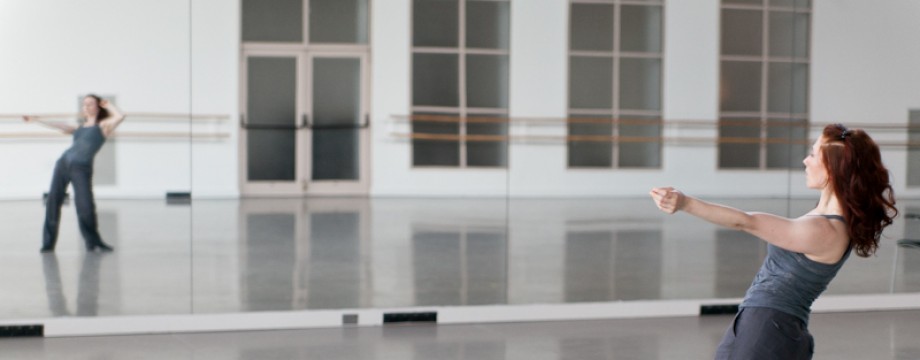I’ve spent the past two days clearing personal items out of my apartment and packing up a suitcase that I intend to live out of for five months. I tend to be a homebody, a cultivator of my nest. I can’t be content with sheets hanging over the windows and milk-crate book cases. When I move into a space I have to make it mine. I spent a week re-painting my current apartment when I moved in, built closet space and agonized over how to decorate it. I know I’m successful when I’d rather stay in than go out and when people walk up the stairs, look around the room and exclaim, “Oh! This is so nice!”
And now I’m leaving the comfort of my home behind.
Honestly, I don’t relish the idea of using someone else’s shower, constantly looking for a place to tuck my suitcase, sleeping in strange beds… but this kind of discomfort is useful for making you pay attention to your surroundings. When you live in your own nest, you stop noticing things outside of you – you block out the clutter of your own life, piles of bills, the unwashed dishes, the pile of books in the hallway you keep meaning to give away.
In a new space, your sensitivity is increased, you see more, smell more, notice more. When your senses are stimulated, your mind is stimulated. Even better, is meeting new people who have different ways of living, different ways of thinking. So, despite my reluctance to leave my comfortable home, the sanctum of my morning routine, my friends, students and habits behind, I’m convinced that I need this prolonged state of discomfort in order to transform.
Discomfort leads to transformation
Think about what it takes to get strong: lifting heavy things. It hurts after a while, but when it starts to hurt, you know you are stimulating the muscle fibers and making them grow. Same with getting faster: you have to push yourself till you are out of breath, till you feel that burn, till your heart is really pounding. If you keep doing this, eventually you’ll be faster than when you started.
It seems like many of life’s lessons are learned through discomfort. Do something selfish and have your best friend get mad at you. It hurts, but you learn—don’t do that thing again. Spend too much money on useless things and discover the pain of not being able to buy groceries, pay the gas bill or for something you really really need.
As we get older, we become more cautious, we don’t want to feel pain and so we project into the future what might happen if we say something, spend money on something, write an impulsive email. Our minds can grow in this way, but our bodies can’t.
So, while I’m focusing on the value of discomfort (or projected discomfort) as a way to transform my mind, I also think about how discomfort is so important to improving as a dancer.
Discomfort and Dance
Have you ever taken a dance class where the teacher taught a move that’s like one you learned somewhere else. What do you do… you stop watching them, you grab your partner and start executing the move you know how to do, thinking, “There! I got it!” But you’re not learning, you’re regurgitating. If you’re lucky, the teacher will see it, walk up and say, “you’re doing the move like this, but the move I’m teaching is different in this way.” Hopefully they’ll set you straight. But in group classes instructors don’t always have the luxury to call people out who are regurgitating moves.
So, assume that you don’t know how to do the move. Even though it looks a lot like the move you always do. Assume that there’s something different and look for the differences. Maybe you’ll discover that the instructor steps in a different direction, rotates differently, connects with their partner differently – and maybe those things fundamentally change the feeling of the move – something you wouldn’t have noticed if you just did the thing you always know how to do.
The thing is, it’s much more comfortable to repeat what you know how to do than it is to start from scratch all over again… stepping slowly, carefully, checking to see if everything is in the right place. Moving your arm at a different angle than you usually do, feels weird. Your mind rebels and says, “no, it feels natural to lift my elbow because I always do.”
So when I have a student who says, “well it feels more natural to do it this way.” (The wrong way.) I know they are not learning, they’re regurgitating and I have to convince them to feel awkward for a little while so that they can get it.
Craig Harper of Lifehack.org has this to say about discomfort:
“While there are many variables which play a role in the transformational process (vision, planning, preparation, goal-setting, talent, knowledge, support, etc.), it’s my experience that the person with every ingredient except a willingness to get uncomfortable, is the person who will fail. Time after time. Once we acknowledge (and accept) that lasting transformation can only occur when we face our fears and choose to get uncomfortable on a regular basis, then we begin to move from self-limitation to self-empowerment.”
So, no matter what you are doing – taking a dance class, going to a party, visiting a new country, relish in the awkwardness, the discomfort. One day, you’ll find that the new, and perhaps improved way of doing things is comfortable. Even if it’s not the best way or the right way, at least you’ve got one more tool in your arsenal for coping.



One Response to Getting Comfortable with Discomfort